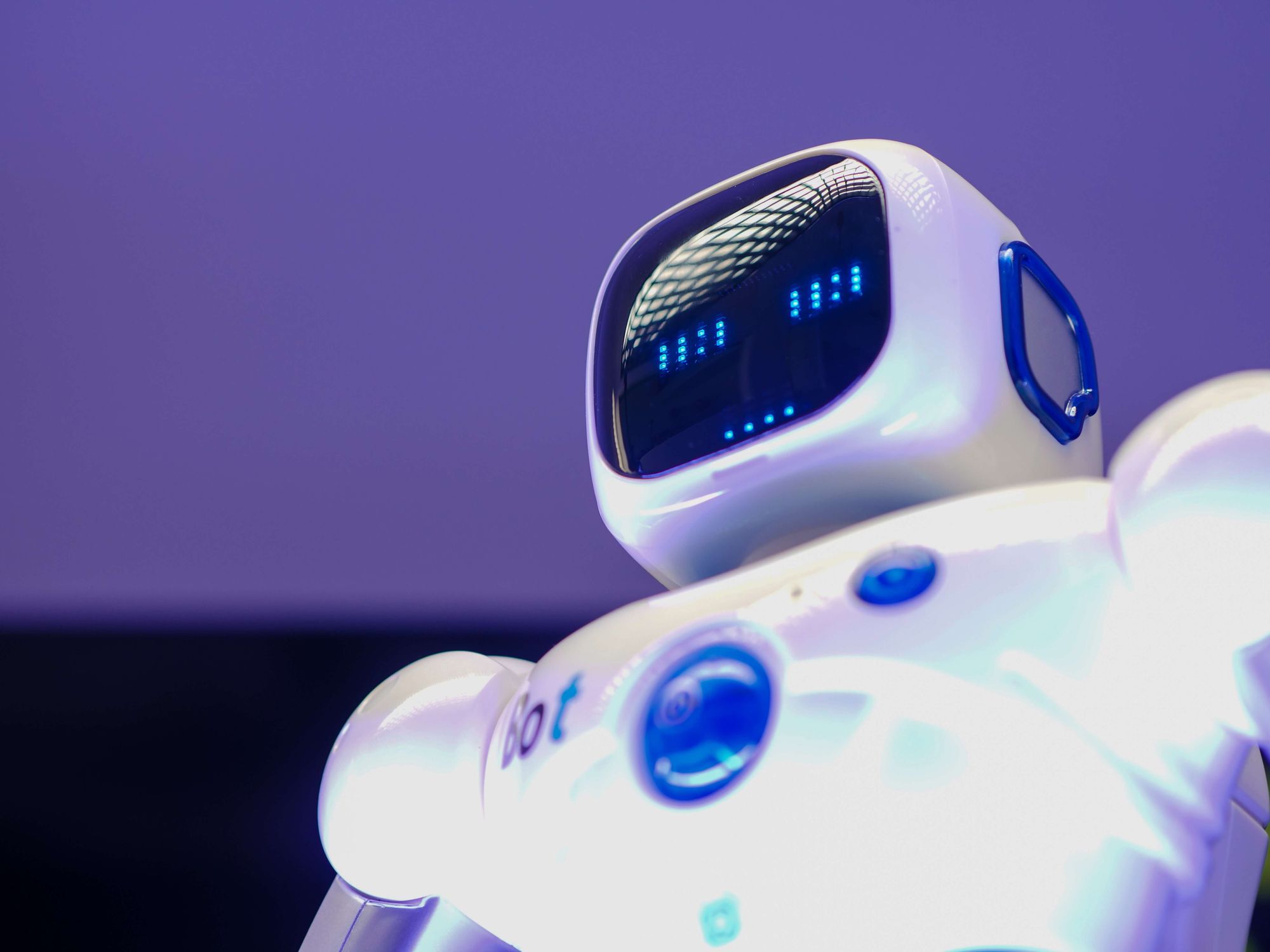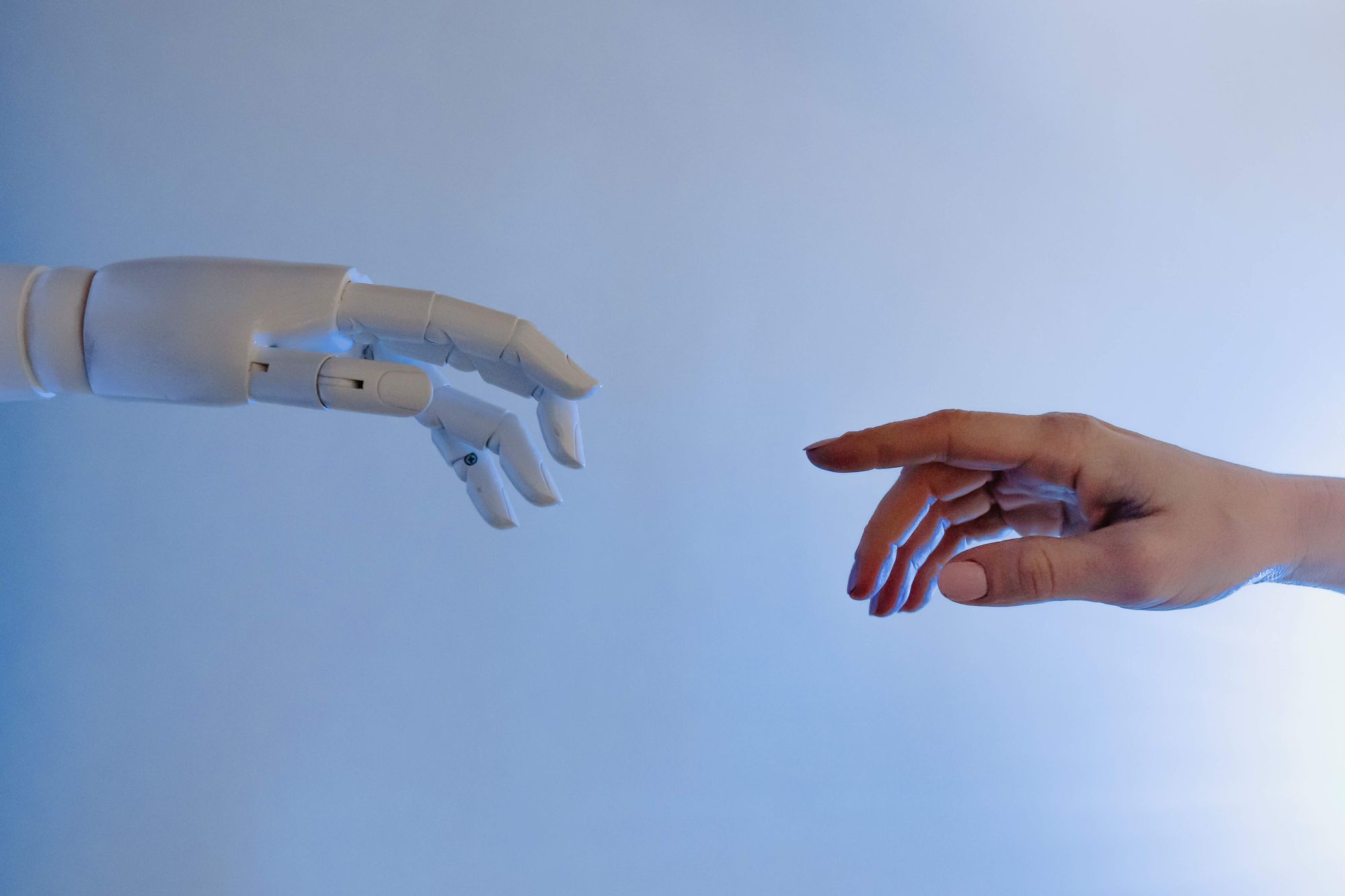With AI-powered marketing becoming more prominent, it has emerged as a leading tool for transforming how companies engage with their customers, create campaigns, and enhance their workflows. Consequently, this innovative strategy transforms business processes, boosts content creation, and overhauls the customer journey.
Generative AI is not designed to supplant human effort; rather, it equips participants with the means to maximize their creativity, strategic planning, and effectiveness, freeing them from mundane and repetitive duties. As the digital landscape continues to evolve, progressive marketers are adopting AI's vast capabilities to optimize and refine their marketing efforts in new and innovative ways.
We observe that the audience view of AI is largely shaped by the narratives of prominent tech firms and large enterprises, with their extensive influence and brand presence, guiding the discourse and framing AI's impact in the context of their operations and practices.
The downside to this is twofold: firstly, it alienates smaller and medium-sized businesses also looking to leverage AI and not sure how to make it tangible, and secondly, it fosters initial skepticism towards AI amidst ongoing debates over content regulation and digital safety. Nonetheless, acknowledging this challenge enables businesses to harness the power of AI-driven technologies and how to use it responsibly, with specific use cases.
In this article, I delve into the dynamic shifts propelled by AI in marketing and present concrete instances of AI applications, illustrating its transformative power and offering guidance on how your business can adopt AI swiftly.

Marketing impacted by AI?
As AI integration becomes more pervasive in marketing, these key areas stand out as exceptionally promising. With technologies and tools consistently evolving to help unlock value, tools such as ChatGPT for gaining insights, competitor analysis, and content creation. DALL-E 2 for image creation and Jasper for SEO, integrated marketing campaigns, analytics, insights, and social media can be used for the following cases.
1. Consumer research and behavior
AI transforms consumer insights and behavior by analyzing extensive data to uncover elusive patterns and preferences. For example, a global company can employ AI-driven analysis of consumer behavior to scrutinize social media conversations, customer reviews, and online surveys across many channels and continents, thereby identifying emerging trends.
By harnessing the power of AI to understand and anticipate consumer behavior, companies can not only create products that resonate with current market trends but also strategically position themselves to increase sales and gain a larger share of the market.
2. Workflow enhancement
AI vastly improves daily efficiency, allowing marketers to focus on strategic aspects of their campaigns. It aids in optimizing SEO workflows, by boosting traffic and conversions with AI-powered content creation, optimization, and SEO-friendly integrations.
Generate keyword-optimized article outlines and first drafts at scale, build preferred workflows, and integrate with Zapier or Google Sheets. It can analyze content for rank ability and safeguard against plagiarism with add-ons and analyze content against SERP (Search Engine Results Page) competitors and optimize it accordingly.
3. Paid search optimization
Keyword management is crucial in paid search marketing, yet it's often a complicated task.
AI, with the help of Natural Language Processing (NLP), simplifies this by improving keyword optimization, which enables immediate adjustments, richer insights into the audience, and improved ad targeting. For instance, AI-driven paid search optimization can help achieve and secure prime positions in search results. It can skillfully adjust ad text and bid tactics by analyzing user search queries in real time.
This guarantees that potential buyers see the most relevant products which can increase conversion rates. AI can be used as a time and cost-saver, identifying areas of overspending due to irrelevant ad matching and then allowing for quick and efficient optimizations.
4. Organic marketing
AI-powered organic marketing leverages generative AI to create new content, such as human-like text and brand images. Companies of all sizes can utilize AI-generated content to engage their audience on social media without lengthy creative conception.
The AI system suggests creative and engaging ideas informed by intelligent data, igniting user interest, and boosting engagement without the need for extensive manual content creation. You can refine various kinds of organic content and imagery, doing away with the need for exhaustive brainstorming and writing processes.
5. Strategy and planning
Marketing driven by AI provides brands with unmatched insights for improving strategy and planning processes. It aids in brainstorming and crafting strategies and directions for new campaigns. Generate actionable insights, to uncover new, untapped markets for a marketing campaign for any business's demographic data and customer needs insights, which pinpoints critical whitespace opportunities.
Identify customer segments and needs by integrating data from multiple sources to gain a complete view of potential customer segments and their needs. Develop a range of creative campaign concepts and directions and develop detailed briefs for campaigns that equip the creative lead/team with everything they need to launch the production of a new campaign.

Transforming marketing, growing human-first
As we utilize AI to transform our methods in workflow, content creation, and customer engagement, what becomes clear is the critical role of the human aspect in marketing. This technological advancement compels us to reassess the significance of human input in marketing: the necessity of personal interaction, the spark of human innovation and originality, and the importance of spontaneous contributions we bring to processes.
This shift towards AI-assisted marketing strategies and the introduction of automated tools allows marketing professionals to dedicate more resources to what truly matters: forging real, human connections with audiences, which ultimately is the cornerstone of any successful marketing effort.
AI is changing the marketing landscape. What the future holds is still unknown, and it's much better to explore uncharted places with a group. And there's no better group than a global network of CMOs and marketing leaders: the CMO Alliance Community Slack channel.




